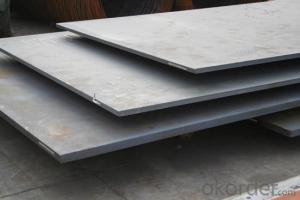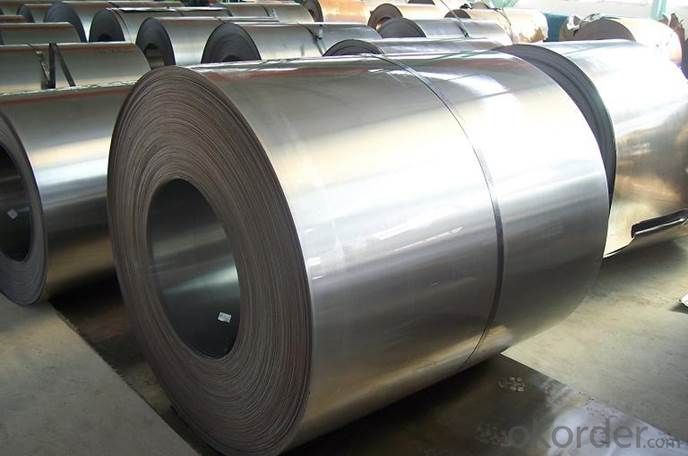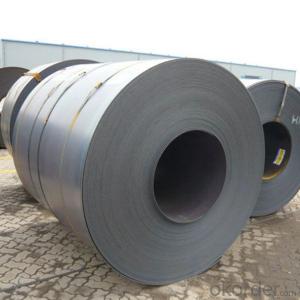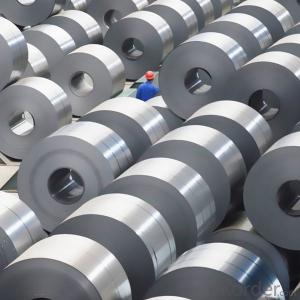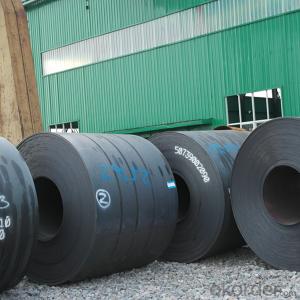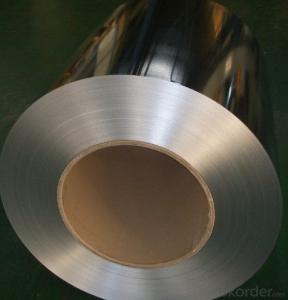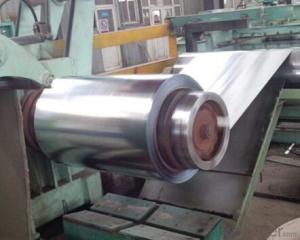Hot Rolled Steel Coils/Sheets from China, A36,Q235
- Loading Port:
- China main port
- Payment Terms:
- TT OR LC
- Min Order Qty:
- 25 m.t.
- Supply Capability:
- 100000 m.t./month
OKorder Service Pledge
OKorder Financial Service
You Might Also Like
Hot Rolled Steel Coils/Sheets
Product: | Hot Rolled Steel Coils/Sheets |
Material: | Q195,Q235,A36,SS400,S235JR,Q345,ST37-2, CCSB etc |
Standard : | JIS G3002 GB/T251B |
Technique: | hot rolled |
Thickness | 1.2mm to 200mm |
Tolerance of thickness: | :+/-0.03mm |
Width: | 750mm-2000mm |
Tolerance of width: | :+/-5.00mm (aiming to +/-2.00mm) |
Normal width: | 914mm, 1000mm, 1200mm, 1219mm, 1250mm,1500mm |
Length: | According to requirement |
Coil ID: | 508mm-610mm |
Coil Weight: | 10-25 Metric Tons |
Surface: | Black, Chromate, fingerprint resistant treatment, slight oiled or non-oiled, dry |
Port of Loading: | Tianjin/Shanghai port |
Packaging Details: | Standard export packing or according to the clients required |
Delivery Time | Within 30 days after received 30% deposit or workable L/C |
Payment Terms: | L/C,T/T |
components | C
| Si
| Mn
| P ≤ | S ≤ | N | TAl | V | Nb | Ni |
0.06-012 | 0.15-0.30 | 0.25-0.50 | 0.030 | 0.030 | ||||||
Use | Various types of steel components for riveting, bolting, welding. | |||||||||
size | 3000-118800mm*1500-4000mm*6-700mm | |||||||||
Thickness | 6-700mm | |||||||||
Standard | DIN17100 | |||||||||
Material | ST37-2 | |||||||||
Packing | According to the demand of the customer | |||||||||
Surface treatment | Hot-rolled | |||||||||
- Q: Hi I was thinking about buying this knife, but i wasn't sure if it was good because it's stainless steel.
- This isn't really a question for this section, but I'm still happy to help out since I'm a big cutlery nerd as well. One thing to look out for when buying a knife is a lack of specifics on what steel is being used. High Carbon Stainless Steel doesn't tell you what the steel is, just what it MIGHT be. Chances are it's something along the lines of 420HC or 440A, both of which are softer steels. They aren't the worst steels around, but they are very quick to dull. You'd be better off looking at the Balisongs of Benchmade. They'll cost more, but you'll know that you're getting something made with quality materials and that won't break on you. And if it does break for some odd reason, Benchmade's warranty and customer service are both fantastic. Although if a more questionable knife is okay with you as long as the price isn't too high, then at least 420HC and 440A aren't too brittle and will take a decent edge even though they'll dull quickly. As for whether stainless steel is good for a knife or not, that depends on the type of stainless steel and what you're going to use the knife for. Many stainless steels are more brittle than a carbon steel, so high carbon stainless steels are a bit more likely to rust but a little tougher as well. In a butterfly knife, a steel like that is a good way to go, although the steels used by Benchmade, as I mentioned, are of a much better quality.
- Q: if steel is heated from room temperature (20c) to (500c) what would be the change in density?coefficient for linear expansion of steel 12x10^-6 k density of steel 7800 kg
- First you have to convert the coefficient of linear expansion to a coefficient of volumetric expansion. Multiply the coefficient of linear expansion by 3: Coefficient of expansion of steel,β:12E-6/°K x 3 = 36E-6/°K Difference in temperature: 480°K ΔV = VoβΔT ΔV = Vo x (0.000036) x 480 ΔV = 1m? x 0.017 ΔV = 0.017m? Originally, the steel was at 7800 kg/m? Now, the steel was at 7800 kg/ 1.017m?, or 7670 kg/m? Change in density = 7670 - 7800 = -130kg/m?
- Q: What are the main factors that affect the formability of steel coils?
- The main factors that affect the formability of steel coils include the composition and microstructure of the steel, the thickness and width of the coils, the presence of any impurities or defects in the material, the temperature and speed of the forming process, and the type of equipment and tooling used for forming.
- Q: What are the pros and cons to selecting a graphite shaft sand wedge over steel shaft?
- The way to resolve the selection is to go with the shaft that matches the other clubs in your set. If you have steel shafted irons go with steel. You will find the similar feel when you hit shots is most important.
- Q: How are steel coils used in the production of steel drums?
- Steel coils are used in the production of steel drums by being unwound and shaped into circular sheets. These sheets are then formed into the body of the drum, providing the necessary strength and durability.
- Q: What are the different coil packaging machine configurations used for steel coils?
- There are several different coil packaging machine configurations used for steel coils, including horizontal coil packaging machines, vertical coil packaging machines, and orbital coil packaging machines. Horizontal coil packaging machines are typically used for smaller steel coils and provide a horizontal wrapping process. Vertical coil packaging machines are designed for larger steel coils and perform a vertical wrapping process. Orbital coil packaging machines use a rotating ring to wrap steel coils in a circular motion, providing maximum stability and protection. Each configuration offers specific advantages and is chosen based on the size and shape of the steel coils being packaged.
- Q: How do steel coil manufacturers ensure timely delivery?
- Steel coil manufacturers ensure timely delivery by implementing efficient production and supply chain management systems. They closely monitor the production process, maintain a well-planned inventory, and coordinate with logistics partners for streamlined transportation. Additionally, they prioritize effective communication with customers to understand their delivery requirements and provide regular updates on the progress and estimated delivery dates.
- Q: How are steel coils used in the production of construction components?
- Steel coils are used in the production of construction components in various ways. One common use is for the manufacture of steel beams and columns, which are essential structural elements in buildings and other large structures. The steel coils are processed and shaped into the desired dimensions, then cut and welded to form the beams and columns. Steel coils are also used in the production of roofing and wall cladding materials for construction. These coils are often coated with protective layers to enhance durability and resistance to corrosion. The coils are then shaped and formed into roofing sheets, wall panels, or siding materials that provide both aesthetic appeal and functional protection to the building. Another important application of steel coils in construction is for the production of reinforcing bars, commonly known as rebar. Rebar is used to provide strength and stability to concrete structures, such as foundations, slabs, and walls. The steel coils are processed and cut into specific lengths, then shaped and twisted to form the required reinforcement bars, which are then embedded within the concrete during construction. Furthermore, steel coils can be used in the production of various other construction components, such as pipes, tubes, and profiles. These components are used for plumbing, heating, ventilation, and other structural applications. The steel coils undergo different manufacturing processes, including rolling, welding, and shaping, to achieve the desired dimensions and properties of these components. In summary, steel coils play a crucial role in the production of construction components. They are used to manufacture steel beams, columns, roofing and wall cladding materials, reinforcing bars, pipes, tubes, and profiles. These components are vital for the construction industry, as they provide strength, durability, and functionality to buildings and other structures.
- Q: Steel resist tension. Then why we provide steel in compression zone ?
- There are several reasons to add compression steel. Keep in mind, supported steel (meaning it can't buckle) resists compression as well. Compression steel helps reduce long term deflections. Concrete creeps under sustained loads. Steel lessens the compression, meaning less sustained compressive stress to cause creep deflection. It makes members more ductile. Since the steel takes some of the compressive stress, the compression block depth is reduced, increasing the strain in the tension steel at failure, resulting in more ductile behavior (the moment at first yield remains largely the same with compression steel added, but the increase in capacity after yield is significant). Compression steel insures that the tension steel yields before the concrete crushes, meaning it helps change the failure mode to tension controlled. It makes beams easier to construct. With bars in the top and bottom, you have longitudinal reinforcement in all 4 corners of the shear stirrups to keep them in place when pouring the concrete. Also, for continuous members, its often easier to run your negative moment steel the full length of the beam rather than trying to cut it off in the positive moment regions. Serviceability concerns. You're going to end up putting steel in that region anyway to for temperature and shrinkage.
- Q: I want a stainless steel refrigerator that doesn't leave fingerprints and I'm looking on Lowe's website but they have too many choices and i don't have a clue what they are. The have stainless, stainless look, stainless steel, monochromatic satina, and monochromatic stainless steel. Can anyone tell me what the heck those mean? lol
- RE: stainless steel refrigerator that doesn't leave fingerprints? I want a stainless steel refrigerator that doesn't leave fingerprints and I'm looking on Lowe's website but they have too many choices and i don't have a clue what they are. The have stainless, stainless look, stainless steel, monochromatic satina, and monochromatic stainless steel....
Send your message to us
Hot Rolled Steel Coils/Sheets from China, A36,Q235
- Loading Port:
- China main port
- Payment Terms:
- TT OR LC
- Min Order Qty:
- 25 m.t.
- Supply Capability:
- 100000 m.t./month
OKorder Service Pledge
OKorder Financial Service
Similar products
Hot products
Hot Searches
Related keywords
